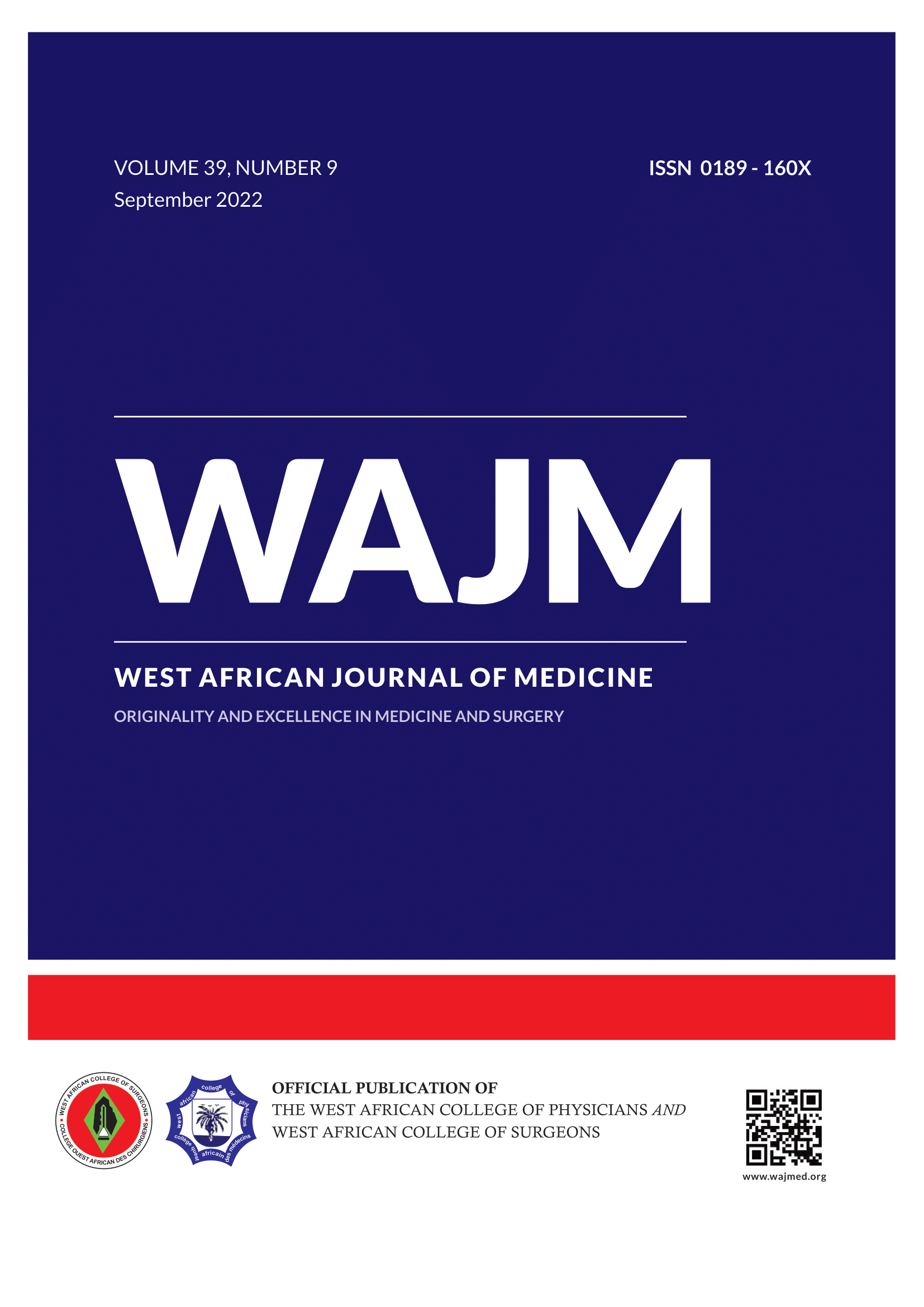ORIGINAL: COVID-19 Vaccine Hesitancy in a Medically-Challenged Context: A Cross-Sectional Study of Drivers, Dangers and Corrective Measures for Vaccine Hesitancy and Potential Penalties for Declining Vaccination among Adults in South-Eastern Nigeria
West Afr J Med . 2022 Sep 16;39(9):889-895
Abstract
Background: COVID-19 vaccine hesitancy is a global public health problem. It is a complex and context-specific phenomenon that varies within and across nations. Despite COVID-19 vaccine programmes in Nigeria, there are possibilities that vaccine uptake and coverage among adult citizens will suffer setbacks amidst various interventions by the Federal Government of Nigeria.
Aim: The study aimed to determine the drivers, dangers, and corrective measures for COVID-19 vaccine hesitancy and potential penalties for declining vaccination among adults in South-eastern Nigeria.
Methods: A descriptive study was carried out from March to April, 2021 on a cross section of 400 adults in South-eastern Nigeria. Data collection was done using a structured, pretested, and interviewer administered questionnaire. The questionnaire elicited information on drivers, dangers and corrective measures for COVID-19 vaccine hesitancy and potential penalties for declining vaccination.
Results: The study participants were aged 18-86 (51±14.2) years. There were 227(56.8%) females. The most common driver of refusal of COVID-19 vaccination was the safety of COVID-19 vaccines(100.0%). The most perceived dangers of refusing the COVID-19 vaccine were the risks of contracting COVID-19 infection(100.0%) and dying from its complications(100.0%). The most common corrective measure for refusal of the COVID-19 vaccine was public health information and education on vaccine safety(100.0%). The predominant potential penalty for declining the COVID-19 vaccine was restricting access to air travel (100.0%).
Conclusion: This study has shown that the most common driver of vaccine hesitancy was vaccine safety while the most commonly perceived dangers were risks of contracting COVID-19 infection and dying from its complications. The most common corrective measure for refusal of the COVID-19 vaccine was public health information and education on vaccine safety. The most preeminent penalty for declining the COVID-19 vaccine was restricting access to air travel. There is a need to address these context-specific drivers and dangers that promote vaccine hesitancy. Public health information and education strategies to reduce vaccine hesitancy should be the focus of intervention to improve uptake of COVID-19 vaccination and safeguard the health of Nigerians.
Keywords: COVID-19 Vaccine; Dangers; Drivers; Hesitancy; Nigeria; Penalties.


